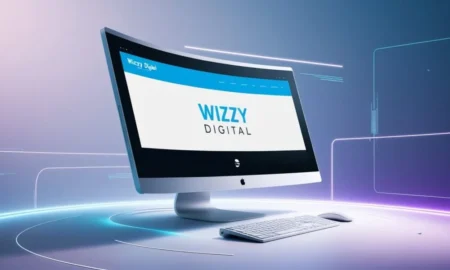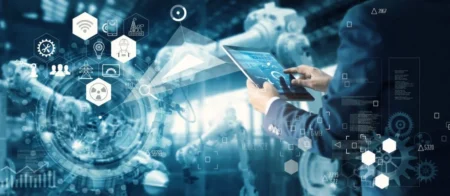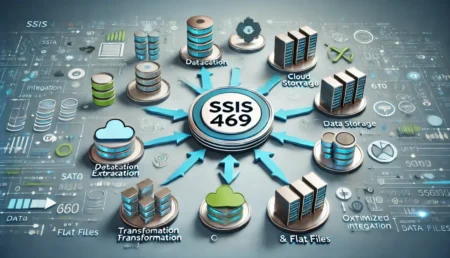In today’s fast-paced world, technology is evolving at an unprecedented rate. From groundbreaking advancements in artificial intelligence (AI) to new innovations in consumer electronics, the tech industry continues to shape our daily lives. At Jotechgeeks, we aim to keep our readers up-to-date with the latest developments. In this article, we’ll dive deep into the latest trends in tech, discuss emerging innovations, and explore what the future might hold for the industry.
1. Artificial Intelligence The Future of Automation
News Jotechgeeks Artificial Intelligence (AI) continues to dominate headlines as one of the most revolutionary technological advancements of our time. AI is no longer limited to theoretical applications—it’s being integrated into everyday tools and services. From chatbots that assist in customer service to AI-driven analytics that predict market trends, the technology has become indispensable across industries.
a. AI in Healthcare
AI is transforming healthcare by enabling doctors to diagnose conditions more accurately and predict treatment outcomes. Algorithms are capable of analyzing medical images, detecting diseases at an early stage, and even suggesting personalized treatment plans. AI-powered robots are assisting in surgeries, improving precision, and reducing recovery times for patients.
b. AI in Business
Businesses are utilizing AI-powered systems for automating mundane tasks, optimizing logistics, and predicting consumer behavior. This helps companies save time, reduce costs, and increase efficiency. Companies that leverage AI effectively are more likely to gain a competitive advantage in their respective industries.
2. The Rise of Quantum Computing
Quantum computing is poised to revolutionize the tech industry by solving problems that are currently impossible for classical computers to handle. This technology relies on quantum bits, or qubits, which can exist in multiple states simultaneously. As a result, quantum computers can process a massive amount of data in parallel, making them exponentially faster than traditional computers.
a. Quantum Computing in Cryptography
One of the most exciting applications of quantum computing is in the field of cryptography. Quantum computers have the potential to break current encryption standards, which has led to the development of quantum-resistant cryptography. This is crucial for securing sensitive data in the age of growing cyber threats.
b. Quantum Computing in Research and Development
Industries such as pharmaceuticals, material sciences, and aerospace are already leveraging quantum computing to accelerate their research and development processes. These machines can simulate molecular structures, predict chemical reactions, and optimize complex systems, which were previously too resource-intensive for classical computers.
3. 5G Technology The Next Generation of Connectivity
The rollout of 5G networks is transforming the way we connect to the internet. 5G promises faster download speeds, reduced latency, and the ability to support a vast number of connected devices simultaneously. This technology is not only enhancing our experience with mobile devices but also enabling advancements in the Internet of Things (IoT).
a. 5G and Smart Cities
With the advent of 5G, the concept of smart cities is becoming a reality. 5G networks will support real-time data sharing between thousands of interconnected devices, leading to better traffic management, optimized energy consumption, and enhanced public safety measures.
b. 5G and Autonomous Vehicles
Another area where 5G is making waves is in the development of autonomous vehicles. News Jotechgeeks The low latency and high data transmission speeds provided by 5G networks enable vehicles to communicate with each other and their surroundings in real-time, improving safety and efficiency on the roads.
4. The Internet of Things (IoT) Connecting the World
The Internet of Things (IoT) refers to the vast network of interconnected devices that communicate with each other to perform various tasks. From smart homes to industrial applications, IoT is changing the way we live and work.
a. IoT in Smart Homes
Smart homes are equipped with devices like smart thermostats, smart lighting systems, and voice-activated assistants that can be controlled remotely. These devices are not only convenient but also energy-efficient, allowing homeowners to reduce their environmental footprint and save on energy costs.
b. IoT in Industrial Applications
The industrial IoT (IIoT) is being used in manufacturing, logistics, and agriculture to optimize operations. Sensors placed on machinery can detect performance issues before they cause breakdowns, while IoT-enabled supply chains ensure timely deliveries and reduce waste.
5. Virtual Reality (VR) and Augmented Reality (AR) The New Frontiers of Experience
Both virtual reality (VR) and augmented reality (AR) are gaining traction across multiple industries, including gaming, education, and healthcare. These immersive technologies allow users to experience and interact with digital content in innovative ways.
a. VR in Gaming
Virtual reality is revolutionizing the gaming industry by offering players fully immersive experiences. With VR headsets, gamers can step into virtual worlds and interact with their surroundings in a way that was previously unimaginable. This has led to the development of new genres of games and a more interactive experience for users.
b. AR in Retail
Augmented reality is being embraced by retailers to enhance the shopping experience. With AR apps, customers can virtually try on clothes, visualize furniture in their homes, and explore products in 3D, all from their smartphones. This technology not only boosts sales but also reduces return rates by helping customers make informed purchase decisions.
6. Sustainable Technology Green Innovations for a Better Tomorrow
As the world faces growing environmental challenges, the tech industry is stepping up with sustainable innovations. From energy-efficient devices to eco-friendly materials, companies are prioritizing sustainability in their products and processes.
a. Renewable Energy Solutions
The push for renewable energy has led to innovations in solar panels, wind turbines, and energy storage systems. These technologies are not only reducing reliance on fossil fuels but also making energy more accessible to remote areas of the world.
b. Sustainable Materials in Tech Products
Tech companies are also focusing on using sustainable materials in their products. For example, smartphones and laptops made from recycled materials are becoming more common. Additionally, companies are designing devices that consume less energy and have longer lifespans, reducing the need for frequent replacements.
Conclusion Staying Ahead in the Tech World
As technology continues to evolve, staying updated with the latest trends is essential for individuals and businesses alike. From AI and quantum computing to 5G and IoT, the future of tech promises to be both exciting and transformative. By embracing these innovations, we can shape a more connected, efficient, and sustainable world.










